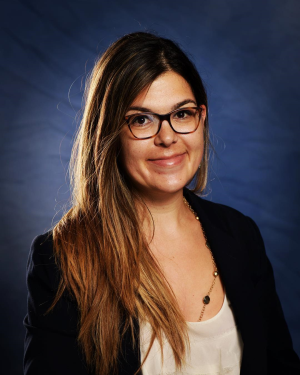
Dulcinea Muñoz-Gómez, Graduate Teaching Assistant in the Department of Spanish and Portuguese, was having a successful semester in Barcelona with a group of Illinois and University of California students when the global pandemic halted the program.
“Everything was going great: the classes, the courses, the extracurricular activities, field trips,” she said. “Students were really happy with their stay in Barcelona, with the university and with their life in general.
“They enjoyed traveling through Europe and had a great integration into a different cultural context, which the program facilitates, thanks to its great teachers and the Program Administrator and Program Coordinator, Gemma de Blas.
On February 24, International Safety and Security at the University of Illinois sent several emails to all students studying/working abroad. Initially, only students from Italy, China and South Korea were called to go back to the US or to their home countries. At the time, Spain was at Level 1. Muñoz-Gómez said those in the program assumed the situation would remain at that level, although even then students and especially their families were nervous. Muñoz-Gómez and de Blas, a native of Spain and someone whom Muñoz-Gómez described as “an example of efficiency, kindness and thoughtfulness,” spent extensive time with the students, “reassuring them and making sure they had the right information and were following health suggestions.”
On March 12 the US Center for Disease Control (CDC) increased the travel advisory alert for Spain to a Level 3 (it would eventually reach Level 4). At that point the U of I cancelled all study abroad programs and asked students to return. “It was a sad moment for many students, some of whom even wanted to stay,” said Muñoz-Gómez. Nevertheless, all the Illinois students were gone by March 16.
LAS offered Muñoz-Gómez the opportunity to stay in Spain or return to Illinois, but she chose to stay and continue working remotely, “as it would be easier in all aspects: relocation, housing, keeping the quarantine.” And, “the single most important factor, however, was health insurance. As a Spanish citizen, I have National Health Insurance, and that will cover me even after my contract ends in the summer.”
In addition, she was very appreciative of the opportunity to be in Spain and continue her work. She made special mention of Ms. Elizabeth Hanauer, LAS Director of Education Abroad, “for her assistance, good management, help and patience.” And, “I don’t want to forget my gratitude to the Spanish and Portuguese department for the great opportunity."
Further, she decided to stay in Barcelona and not travel to her hometown in Burgos, as until that time she had been traveling and had been in contact with many people different parts of Europe. “I especially didn’t want to become a risk for my elderly parents.”
In early March everyone in Spain was confined to their homes and could only leave for grocery shopping or emergencies, or trips to hospitals. Additionally, travel between different communities wasn’t allowed, so Muñoz-Gómez had to stay in place until the government considered it safe to lift the restrictions.
Under those circumstances she had to quickly convert her course to an on-line format and keep in touch with her students. Thus, the week after spring break she began teaching remotely.
“Initially, dealing with the situation, in practical and emotional terms, it was difficult to concentrate on anything else,” she commented. “However, I’ve been able to return to writing my dissertation, which I hope to finish this summer.
“I need to focus on what I can do (versus what I can’t control). I try to maintain a positive attitude, as much as I can, although I also certainly worry a lot.”
From early on in the COVID-19 pandemic, Spain was one of the hardest-hit countries. As of May 4 it had 217,466 confirmed cases and 25,264 deaths, placing it behind only the US, Italy and the UK, according to the Johns Hopkins Coronavirus Resource Center website.
Ironically, Muñoz-Gómez’s dissertation topic deals with how precarious working conditions affect workers emotionally and physically in a context of economic crisis in a neoliberal system. “I analyze four Spanish novels written from 1988 to 2019 with a theoretical framework based on emotion, labor and body theories,” she explained. “This situation is presenting me with the reality of what happens (to the body and the mind) when the current economic system collapses. It’s almost as if my premise had been taken to its limit, in a way that I could not have anticipated.”
At the same time, she observes, “People in Spain have this virtue: in crisis times we support each other and help as much as we can.”
When asked if she had known a pandemic was coming, would she still have gone to Barcelona, Muñoz-Gómez didn’t hesitate in replying, “I’ve made the most of the situation and I would like to encourage students to study abroad. They should consider a program like this one, where they will be immersed in the culture and they will get outside of their comfort zone. That will change their lives and will make them much better prepared to face a connected world.”